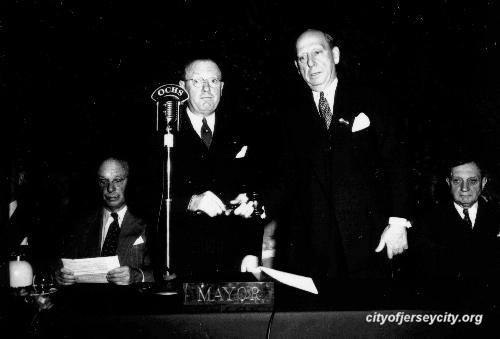County Parties: Alive but not Necessarily Well

During the first six months of 2018, cash-on-hand by New Jersey’s county party organizations jumped by 86 percent over the same period four years ago.
In terms of the financial health of county parties, this appears to be good news. In reality, however, it simply masks the bad news, namely that the parties are in the financial doldrums compared to the late 1990’s and early years of the new century.
Over the ten-year period 2007-2017, spending by county parties actually declined by 1.4 percent, from $14.3 million to $14.1 million. If county spending instead had increased to simply match inflation, it would now be $17.3 million.
Moreover, while the 2017 election involved the Governorship and the Legislature, the 2007 election included only the Legislature.
Keep in mind that county coffers last year were temporarily fattened from an infusion of money in 2017 from the Democratic Governor’s Association (DGA), the Democratic National Committees, national and state unions, and pre-2017 contributions from then-gubernatorial candidate Phil Murphy and other Democratic hopefuls. Minus that cash flow 2017 financial activity by the county parties would have been notably less than ten years earlier.
Even with the extra contributions related to the 2017 governor’s race, the $14.1 million spent in 2017 still pales in comparison to the $27 million spent by county parties in 2003, the peak year for county expenditures.
Clearly, the health of county party organizations has deteriorated. Without legislation the party organizations will soon be on life support.
The declining health of once-vigorous county parties is traceable to the Pay-to-Play Law, implemented in 2006. Though well-meaning, this confusing law resulted in the growth of independent groups and other special interest PACs that have plagued the State’s electoral system.
This is not surprising. Through the years changes to campaign finance laws, as well as other developments, have worked to alter the fortunes of county parties and in turn impacted the electoral system.
County parties dominated politics and government in New Jersey until the 1960’s. Historically, they were the stuff of legend. Hudson County boss Frank Hague and Atlantic County’s “Nucky” Johnson and Frank “Hap” Farley set the standard for strong party leaders. Lewis “Luke” Gray provided unparallel leadership in Somerset County.
Then, in the 1960’s suburbanization and reapportionment decisions, which undid the practice of drawing legislative district lines on the basis of county borders, constituted a major blow to county parties.
Legislative changes in the 1970’s and 1980s made things worse.
After passage of the 1977 Gubernatorial Public Financing Program, county parties no longer played a dominant role in gubernatorial elections because parties were restricted in how much they could give the new, publicly-financed candidates.
The 1981 Open Primary Law further undermined the influence of county parties in that it removed their ability to endorse candidates in the primary and to give them the line on the ballot. The law effectively took away their role in the nominating process.
Yet as the 1980’s drew to a close, county fortunes suddenly improved again. In February 1989, the U.S. Supreme Court, in Eu v San Francisco County Democratic Central Committee, ruled that California’s prohibition on primary endorsements was unconstitutional. This decision likewise caused New Jersey’s law to be in violation of the Constitution. County party leaders regained powers they had lost eight years earlier.
The real turning point for county party organizations, however, came as the result of legislative reforms in 1993.
These reforms stemmed from recommendations made by a legislative study group known as the Rosenthal Commission as well as by the New Jersey Election Law Enforcement Commission (ELEC). In commission white paper reports, I helped craft the ELEC recommendations as deputy director.
The intent was to generally strengthen the parties, including county organizations. The legislative changes allowed parties to accept much larger contributions than individual candidate committees and permitted them to spend unlimited amounts on their candidates.
In the ensuing years, county parties resumed their historic role of preeminent players in New Jersey elections.
Then all began to change again following the enactment of the Pay-to-Play Law, which took effect in 2006. Rather than money flowing to accountable parties, contractor money began flowing to special interest PACs. In many cases, they were specifically set up to circumvent the Pay-to-Play laws.
A bit later, independent 501(c) and 527 non-profit groups emerged, which further drained money away from the parties.
Independent groups now dominate elections in New Jersey. During the 2017 gubernatorial and legislative elections, outside groups spent $48 million, a figure that outdistanced state, county, and municipal parties combined, and by a significant margin.
For their part, as noted above, county party organizations spent $14.1 million, an amount that was half as much as spent in 2003.
As in the past, it is time to change the law again, this time to alter the system in favor of more accountable parties and candidates and away from outside, independent groups.
The Election Law Enforcement Commission has set forth proposals that taken together would change the electoral landscape again by offsetting the influence of outside groups and re-invigorating political parties.
These proposals would strengthen political parties, require registration and disclosure by independent groups and reform Pay-to-Play.
In the interest of the public, independent groups, which already have an advantage in that they are not subject to limits on contributions or on spending, should at least be treated the same in terms of transparency as parties and candidates.
Jeff Brindle is the Executive Director of the New Jersey Election Law Enforcement Commission.
The opinions presented here are his own and not necessarily those of the Commission.





